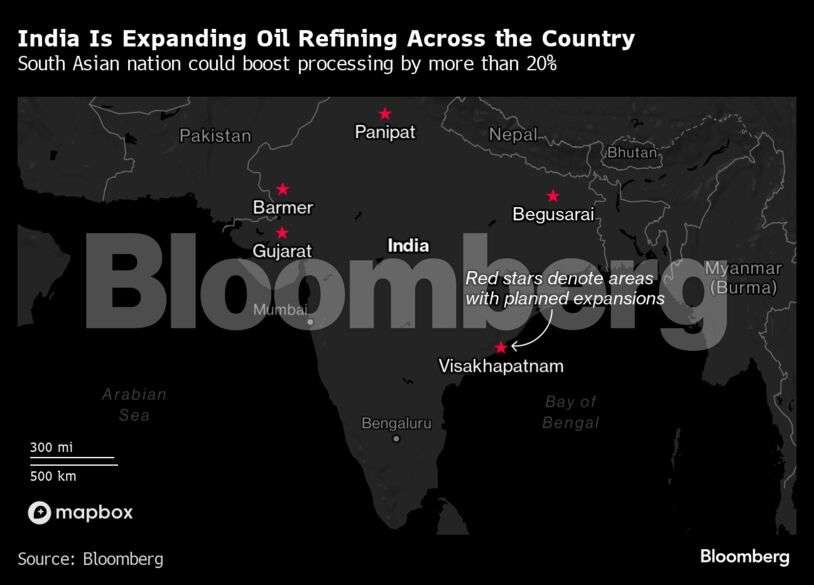India is set to undergo a significant expansion of its oil refineries, aiming to meet the growing demand for fossil fuels in the country. The ambitious plan involves increasing the production of traditional transport fuels like gasoline and diesel, which could raise India's refining capacity by over 20% in the next five years. This expansion comes as a notable exception to the global trend, where the refining industry is declining in the US and Europe.
The driving force behind India's refinery expansion is its surging demand for gasoline and diesel, fueled by a slower adoption of electric vehicles and the country's increasing transportation needs. The government, along with oil companies, is investing approximately $60 billion to enhance refining capacity, develop marketing infrastructure, and establish petrochemical facilities.
According to Rystad Energy, India's refining capacity is expected to increase by 56 million tons by 2028, representing a 22% overall boost or 1.12 million barrels per day. The government has yet to provide detailed plans on achieving these targets, but state-run refiners have already announced expansions totaling around 50 million tons.

India’s refining capacity is projected to increase by 56 million tons by 2028, Junior Oil Minister Rameswar Teli said last month, without elaborating. That equates to an overall capacity boost of 22%, or 1.12 million barrels a day.
Major projects include the Panipat plant in Haryana state by Indian Oil Corp., adding 10 million tons and set to be commissioned by the end of next year. Hindustan Petroleum Corp.'s Barmer refinery in Rajasthan is the second-largest project, contributing 9 million tons, with completion expected in 2024 and full capacity operation by 2025. Smaller expansions are underway at refineries in Visakhapatnam, Gujarat, and Barauni.
While industry experts express confidence in the potential for growth, some caution that achieving the full 56 million tons may be challenging. State-run refiners are likely to bear the majority of the responsibility, as private giant Reliance Industries Ltd. shifts focus towards cleaner energy.
India's refinery expansion is not only aimed at meeting domestic demand but also positions the country as a key player in fuel exports to regions like Europe, especially following disruptions caused by Russia's invasion of Ukraine.
The International Energy Agency predicts that India will add 1 million barrels per day of refining capacity by 2028, marking a 19% increase to a total of 6.2 million barrels per day. While this growth is substantial, India's refining industry remains smaller than that of the US, Europe, and China, which is currently the largest in the world.
In addition to expanding traditional fuel production, India has plans to increase liquefied natural gas capacity and is actively participating in the global transition to cleaner energy, setting a net-zero goal by 2070.